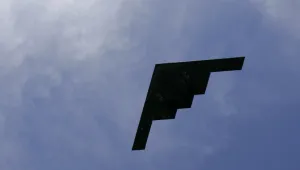International Security is America's leading peer-reviewed journal of security affairs.

Summary
Comparing Israel and Hezbollah’s interactions before and after the 2006 Lebanon War offers insights into the sources of deterrence stability. Since 2006, Israel and Hezbollah have learned to apply rational deterrence theory. Careful communication of capabilities and resolve has contributed to a decade without war. This history also illustrates how a weak actor can deter a stronger adversary by minimizing its own vulnerability and maximizing that of its opponent.
Daniel Sobelman, "Learning to Deter: Deterrence Failure and Success in the Israel-Hezbollah Conflict, 2006–16," International Security, Vol. 41, No. 3 (Winter 2016/17), pp. 151–196.
The full text of this publication is available in the link below.





